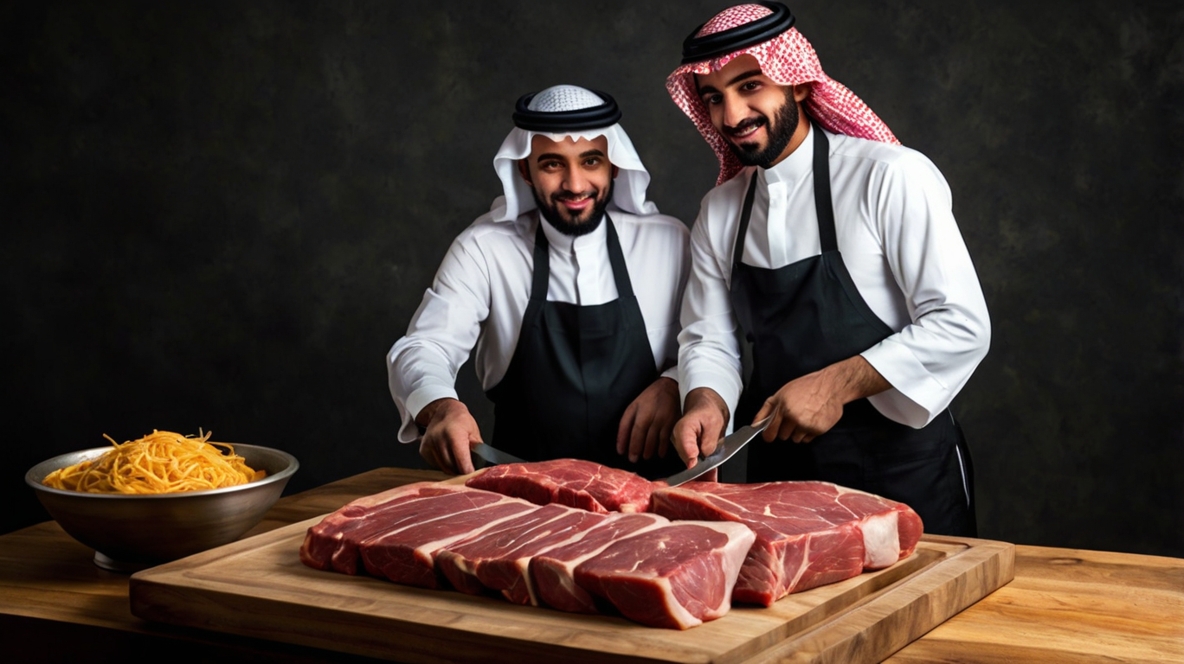The meat market in Saudi Arabia is set to experience substantial transformation in 2025, driven by evolving consumer preferences, technological advancements, and a growing demand for diverse, high-quality meat products. As one of the largest and most dynamic markets in the Middle East, Saudi Arabia’s meat industry is responding to shifts in dietary habits, sustainability concerns, and changing economic factors. This article highlights the key trends that will define the Saudi Arabia meat market in 2025.
- Growing Demand for Halal Meat
One of the most significant trends in the Saudi Arabian meat market is the continued dominance of halal meat, driven by the cultural and religious practices of the population. Halal meat, which adheres to Islamic dietary laws, has a strong foothold in the market, with nearly all meat consumed in Saudi Arabia falling under this category. The demand for halal meat remains high, as both locals and expatriates seek quality meat that meets religious standards.
In 2025, this demand is expected to remain stable, with consumers increasingly preferring locally sourced halal products. The government’s support for halal certification systems and regulations will likely strengthen the position of halal meat in the market, making it a critical pillar of the Saudi meat industry.
- Shift Toward Premium Meat Products
As Saudi Arabia’s middle class grows and disposable incomes increase, there is a noticeable shift towards premium meat products. Consumers are willing to pay more for higher-quality cuts, such as aged beef steaks, tender lamb, and gourmet poultry options. This trend is being driven by a younger, more affluent demographic that values variety, quality, and culinary experiences.
The rise in disposable income is also contributing to the demand for imported meats, especially those considered premium. Countries like Australia, Brazil, and the United States, which are known for their high-quality beef and lamb, are likely to see increased exports to Saudi Arabia. Retailers are responding to this trend by offering a wider selection of premium meats, creating opportunities for global suppliers to tap into this growing market segment.
- Health-Conscious Consumer Behavior
In 2025, health-conscious eating will continue to influence meat consumption patterns in Saudi Arabia. With increasing awareness of health and fitness, many consumers are opting for leaner meats, such as chicken breasts, turkey, and fish. These meats are considered healthier alternatives to fatty cuts of beef or mutton, as they are lower in calories and fat content.
Additionally, organic and hormone-free meats are gaining popularity, as more consumers seek out products that are free from additives and preservatives. This trend is part of a larger global movement toward clean eating, where people are more mindful of what they put into their bodies. The Saudi meat market will likely see growth in organic and healthier meat options, catering to this growing demand.
- Rise of Plant-Based Meat Alternatives
Although still in its early stages, plant-based meat alternatives are emerging as a trend in Saudi Arabia. As consumers become more environmentally conscious and open to sustainable eating habits, plant-based proteins are gaining ground, especially among younger, urban dwellers. The global popularity of plant-based meat brands like Beyond Meat and Impossible Foods is gradually influencing the Saudi market.
In 2025, plant-based meat products are expected to become more accessible in major cities, with retailers and restaurants offering these alternatives alongside traditional meat options. While the adoption rate may be slower compared to other regions, this trend is expected to grow in popularity as the demand for sustainable food options increases.
- E-Commerce and Online Meat Shopping
The digital transformation of Saudi Arabia’s retail sector is significantly impacting the meat market. In 2025, online meat shopping will continue to rise as consumers increasingly turn to e-commerce platforms for convenience and time-saving. Online grocery shopping has become a preferred option for many, and the meat sector is no exception.
Retailers are adapting by offering online meat deliveries and subscription services, allowing customers to select their desired cuts of meat and have them delivered to their doorstep. This shift in shopping behavior is opening up new opportunities for meat businesses to reach a wider customer base, especially in urban areas where convenience is a key factor in consumer decision-making.
Fore More Info : – https://gmiresearch.com/report/saudi-arabia-meat-market/
Conclusion
The Saudi Arabia meat market in 2025 is evolving rapidly, with key trends such as the rising demand for halal and premium meats, the shift toward healthier and organic options, the introduction of plant-based alternatives, and the growth of e-commerce all playing a central role. As the market adapts to changing consumer preferences and global influences, the meat industry in Saudi Arabia is poised for continued growth, presenting significant opportunities for both local and international players in the coming years.

